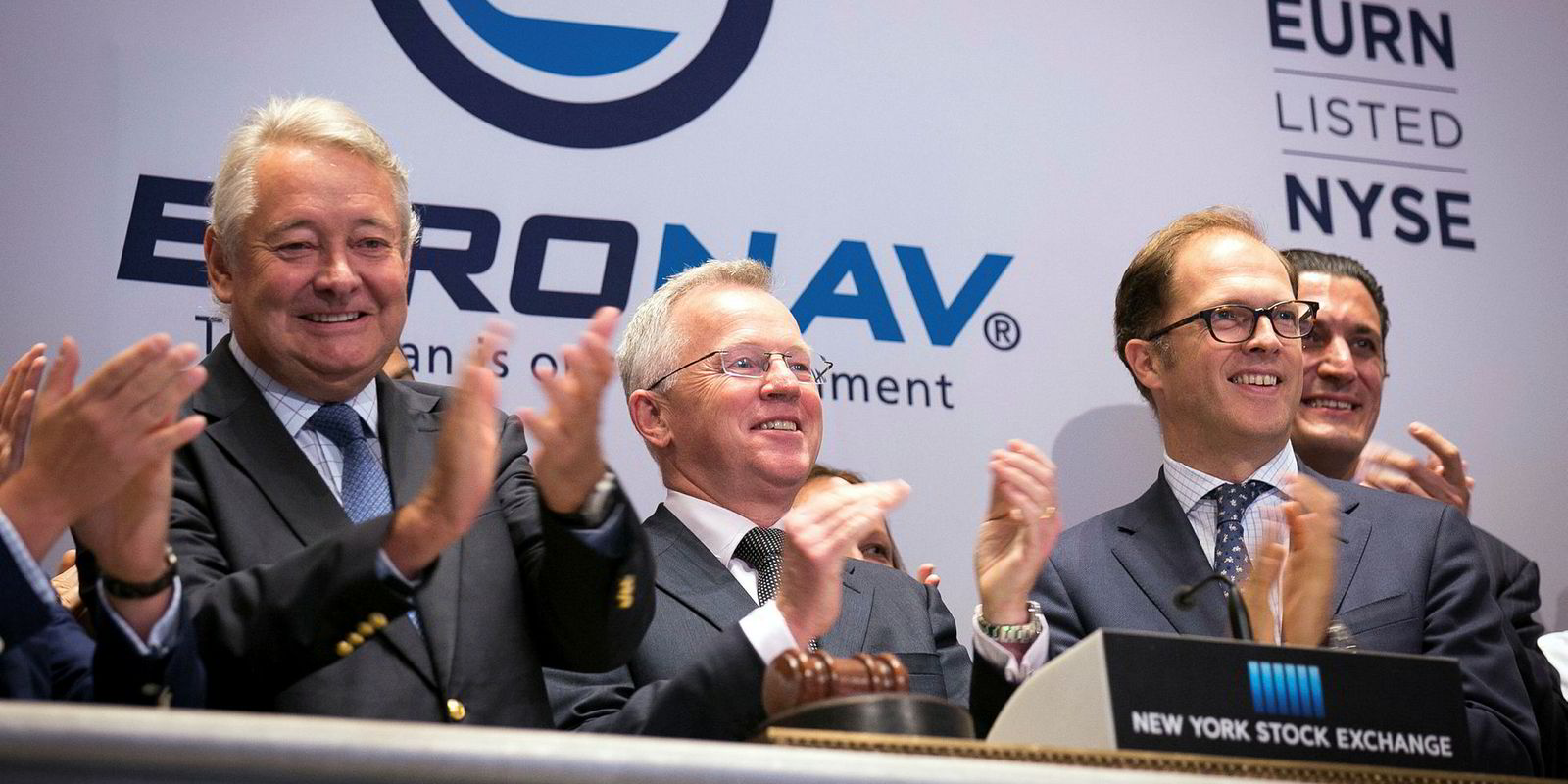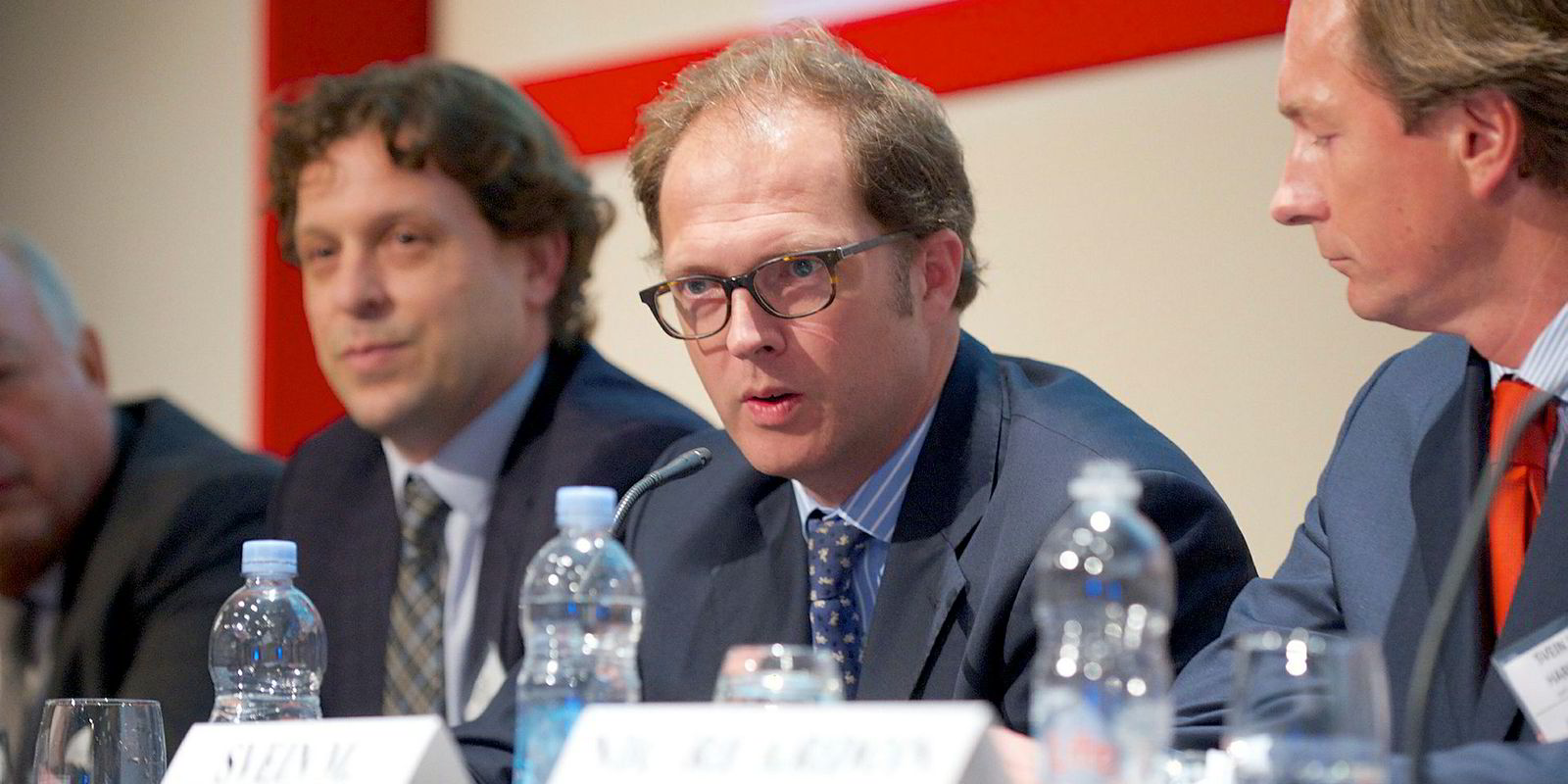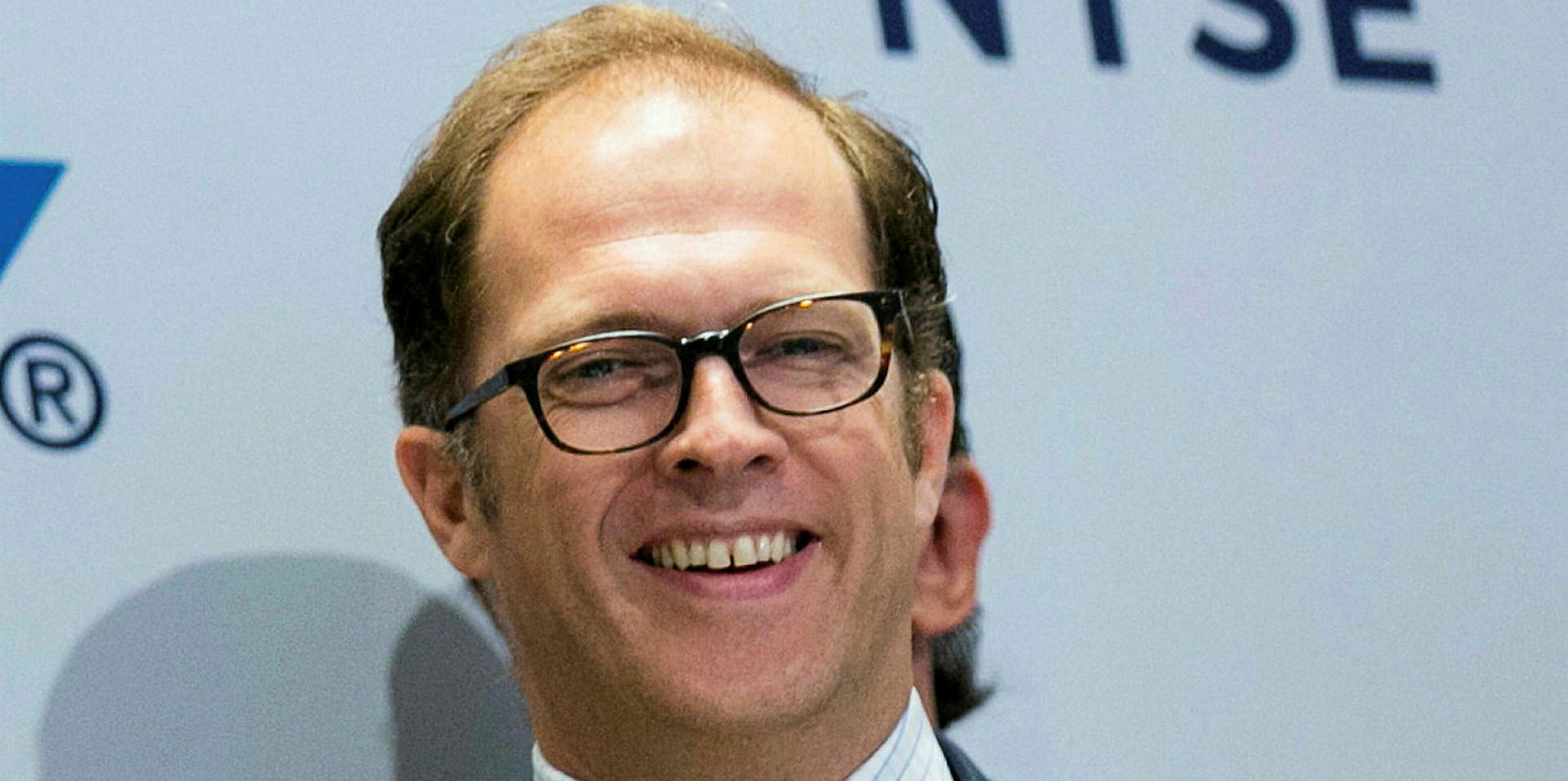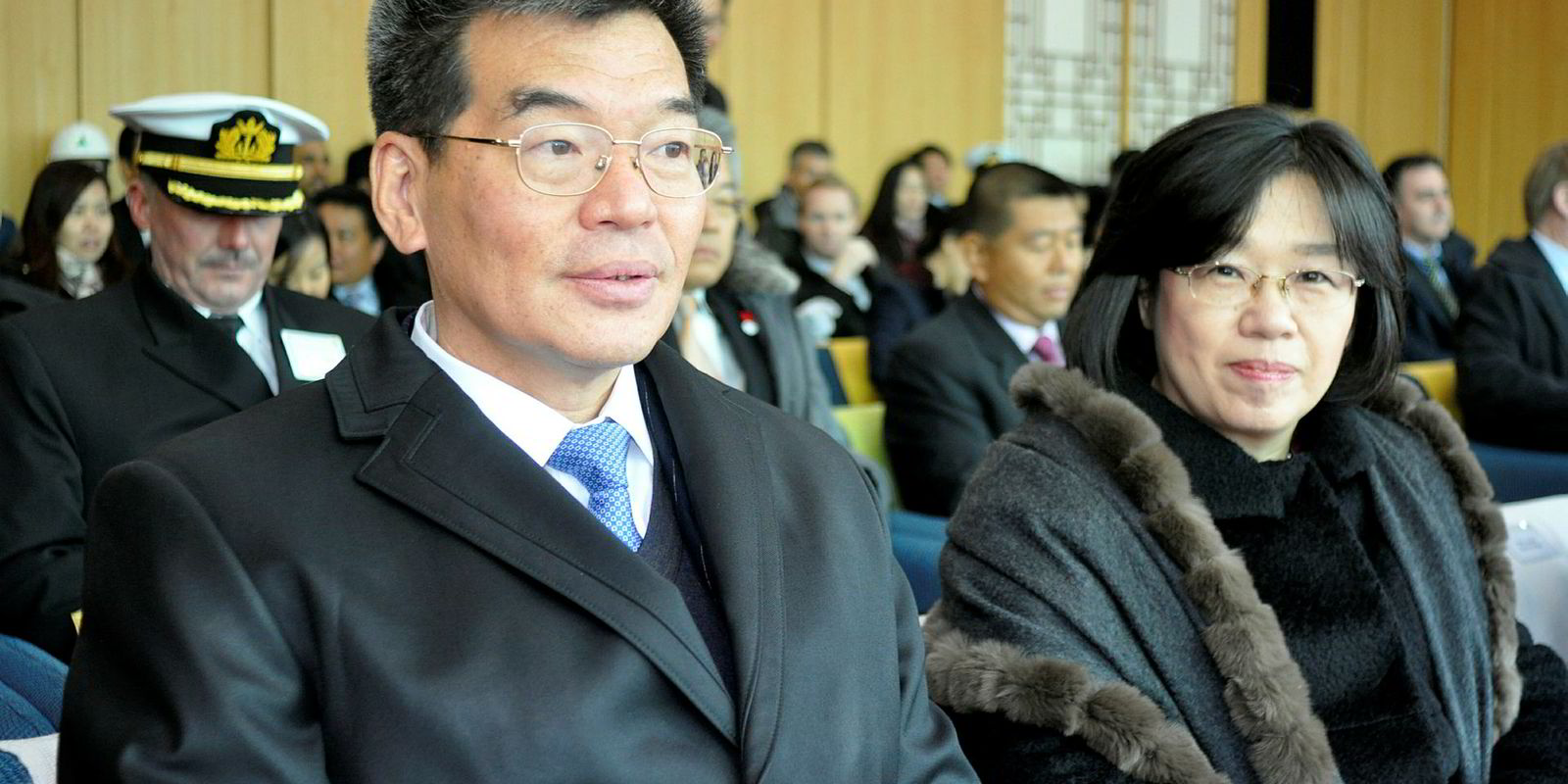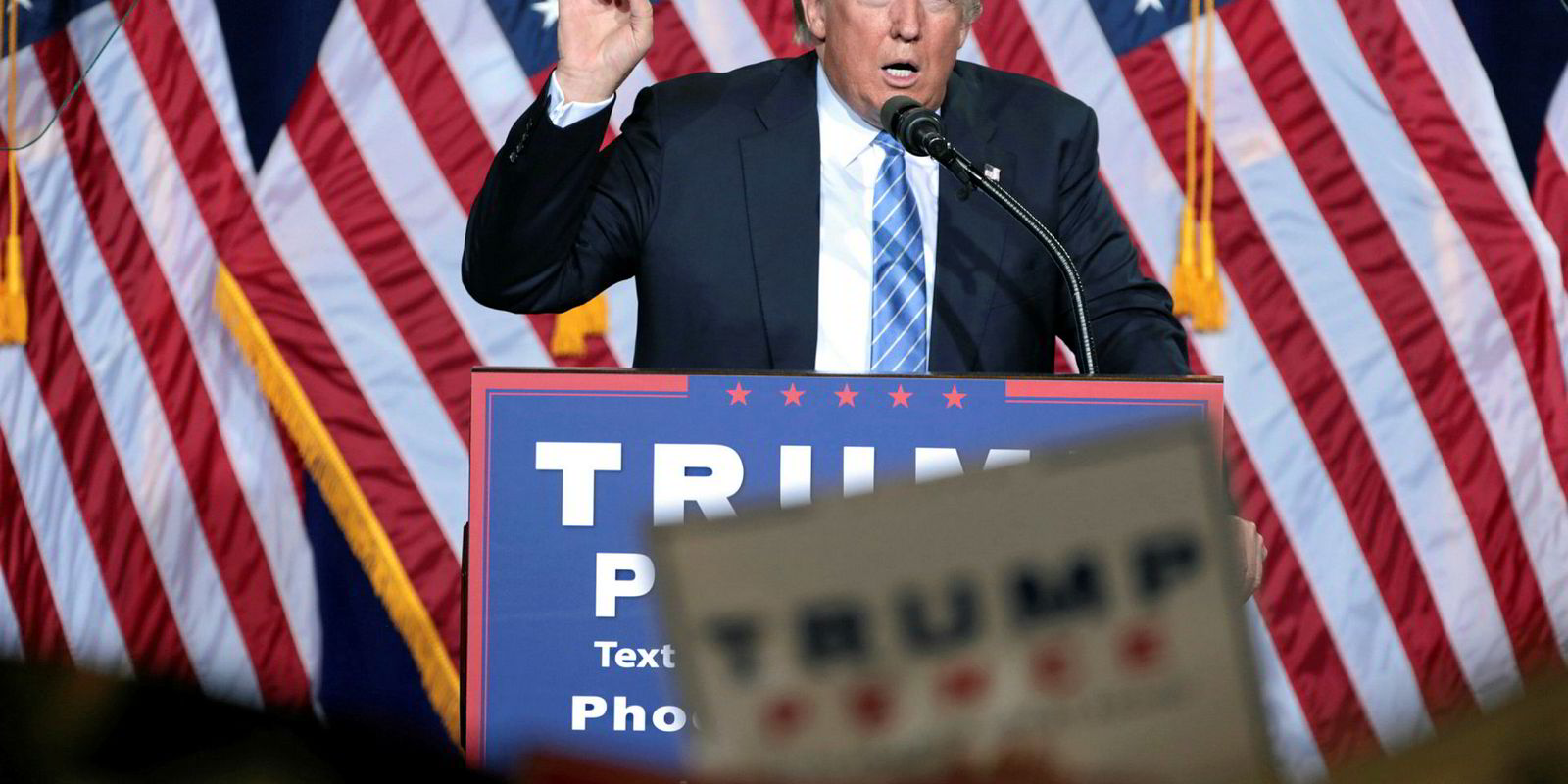Crude tanker consolidator-in-chief Euronav believes asset prices are already beyond the point in the cycle where major deals would be attractive.
Euronav merged with Gener8 Maritime last year and bought the Maersk Tankers VLCC fleet in 2014 at what chief executive Hugo De Stoop described as the bottoms of the respective cycles.
De Stoop believes tanker prices have been on the rise since the Gener8 transaction closed and stressed smaller deals were still a possibility.
“I think in terms of bigger transactions, and certainly if it was an acquisition as opposed to a merger, we believe now the prices are too elevated for that,” he said during the company’s earnings call today.
He said Euronav liked to buy at the bottom of the cycle and enjoy the cheap assets in a rising market.
“But if it comes to a couple of ships here or there, it depends on the circumstances at that point in time, where the share price is and of course where the liquidity position is,” the executive said.
Yards a major influence on values
De Stoop was Euronav’s chief financial officer during both of its previous major deals before taking over the chief executive’s chair from Paddy Rodgers this year.
The new chief explained buying interest from both exiting players and potential new entrants was helping drive up prices, along with the ongoing merger of Hyundai Heavy Industries and Daewoo Shipbuilding & Marine Engineering (DSME).
He described the rising newbuilding price tags as an important element influencing asset values.
“The yards are asking more and more for a newbuilding VLCC with or without a scrubber," he said.
While Euronav may not be a big buyer, it may look to see some of its older ships during the upturn.
"If we see rising prices for older ladies, we will of course take an interest and look at disposing of those," De Stoop said.
Double positive from Iranian crackdown
Euronav today reported a first quarter profit which fell marginally short of market forecasts
De Stoop said this year has seen better balanced VLCC market after major scrapping in 2018 and strong US export growth.
With scrubber retrofits and new sanctions on Iran also likely to aid supply, Euronav has now adopted a brighter "amber light" on its tanker market traffic light system.
“There is still a heavy delivery schedule this year, with around 48 VLCC equivalents due for delivery,” said investor relations chief Brian Gallagher.
“However, the disruption from retrofitting, possible Iranian tonnage exiting the trading fleet and further prospects of scrapping should all offset this.”
De Stoop says half of the 38 strong Iranian tanker fleet is already employed on storage and the remaining ships are likely to be very limited in the extent to which they can trade oil when the previous US waivers expire in May.
“It could be a double positive as first of all the vessels are not in the trading fleet and that oil has to be replaced by other sources,” De Stoop said.
“When we look at potential sources, we see obviously a large part can be replaced by Opec countries in the same region.
"But there is also a big potential in the Atlantic and that is where the tonne miles are increasing.”
